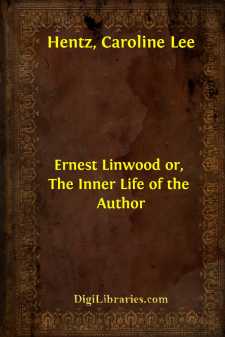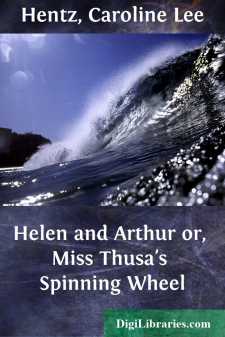Categories
- Antiques & Collectibles 13
- Architecture 36
- Art 48
- Bibles 22
- Biography & Autobiography 813
- Body, Mind & Spirit 142
- Business & Economics 28
- Children's Books 16
- Children's Fiction 13
- Computers 4
- Cooking 94
- Crafts & Hobbies 4
- Drama 346
- Education 46
- Family & Relationships 57
- Fiction 11829
- Games 19
- Gardening 17
- Health & Fitness 34
- History 1377
- House & Home 1
- Humor 147
- Juvenile Fiction 1873
- Juvenile Nonfiction 202
- Language Arts & Disciplines 88
- Law 16
- Literary Collections 686
- Literary Criticism 179
- Mathematics 13
- Medical 41
- Music 40
- Nature 179
- Non-Classifiable 1768
- Performing Arts 7
- Periodicals 1453
- Philosophy 64
- Photography 2
- Poetry 896
- Political Science 203
- Psychology 42
- Reference 154
- Religion 513
- Science 126
- Self-Help 84
- Social Science 81
- Sports & Recreation 34
- Study Aids 3
- Technology & Engineering 59
- Transportation 23
- Travel 463
- True Crime 29
Caroline Lee Hentz
Caroline Lee Hentz (1800–1856) was an American novelist and playwright, known for her pro-slavery and Southern sympathies. She gained popularity in the 19th century for her sentimental novels, especially "The Planter’s Northern Bride" (1854), which was a response to Harriet Beecher Stowe's "Uncle Tom's Cabin." Hentz's works often centered on themes of domesticity, Southern culture, and women’s roles in society. Her other notable works include "Linda; or, The Young Pilot of the Belle Creole" and "Marcus Warland, or The Long Moss Spring."
Author's Books:
Sort by:
ERNEST LINWOOD. CHAPTER I. With an incident of my childhood I will commence the record of my life. It stands out in bold prominence, rugged and bleak, through the haze of memory. I was only twelve years old. He might have spoken less harshly. He might have remembered and pitied my youth and sensitiveness, that tall, powerful, hitherto kind man,—my preceptor, and, as I believed, my friend. Listen to...
more...
CHAPTER I. “First Fear his hand its skill to try,Amid the chords bewildered laid—And back recoiled, he knew not why,E’en at the sound himself had made.”— Little Helen sat in her long flannel night-dress, by the side of Miss Thusa, watching the rapid turning of her wheel, and the formation of the flaxen thread, as it glided out, a more and more attenuated filament, betwixt the dexterous...
more...



